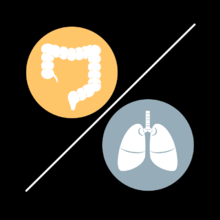Understanding how our biological clock (circadian rhythm) influences immune responses may help to develop timed therapeutic strategies for autoimmune diseases.
New insights on how the time of day affects induction of immune responses and regulation of autoimmunity are revealed in a mouse study published in the scientific journal Nature Communications.
Background
Life follows a 24-hour rhythm driven by the daily cycle of light and darkness due to the earth’s rotation. The molecular clock is the timekeeping system within all our cells that integrates many aspects of our physiology and behaviour to align with these external rhythmic changes.
Maintaining a good circadian rhythm has been shown to be important for good health for humans. In terms of immunity, disrupting the circadian rhythm, for example working night shifts or jet lags, has been associated with increased incidence of the immune diseases such as multiple sclerosis.
To promote synchronization, our master clock in the brain signals to clocks through out our body, such as in the liver, heart, muscle, immune system, hormonal system, intestine, and even gut microbiota.
Coordination of these circadian rhythms relies on a number of genes, and most important among them is the master circadian gene BMAL1.
Findings and implications
Researchers experimentally induced loss of the master circadian gene BMAL1 in mice and showed that this gene is responsible for sensing and acting on the time-of-the-day cues to suppress inflammation.
They also showed that inducing loss of BMAL1 at midday instead of midnight causes more severe mouse model of multiple sclerosis (called experimental autoimmune encephalomyelitis).
Although further investigations are needed to understand how to precisely modulate circadian rhythm or time-of-the-day cues to benefit immunity, the findings highlight the importance of ‘keeping the time’ when dealing with the immune system.





